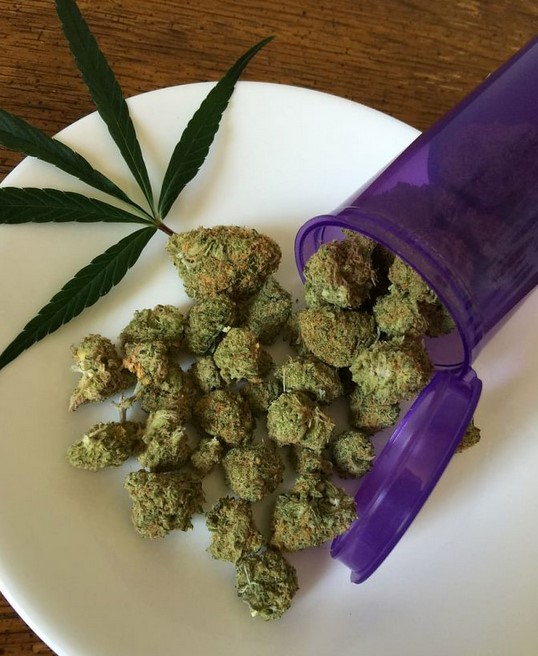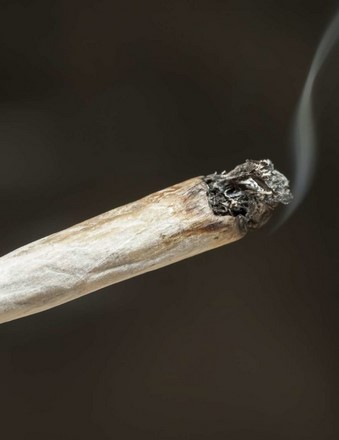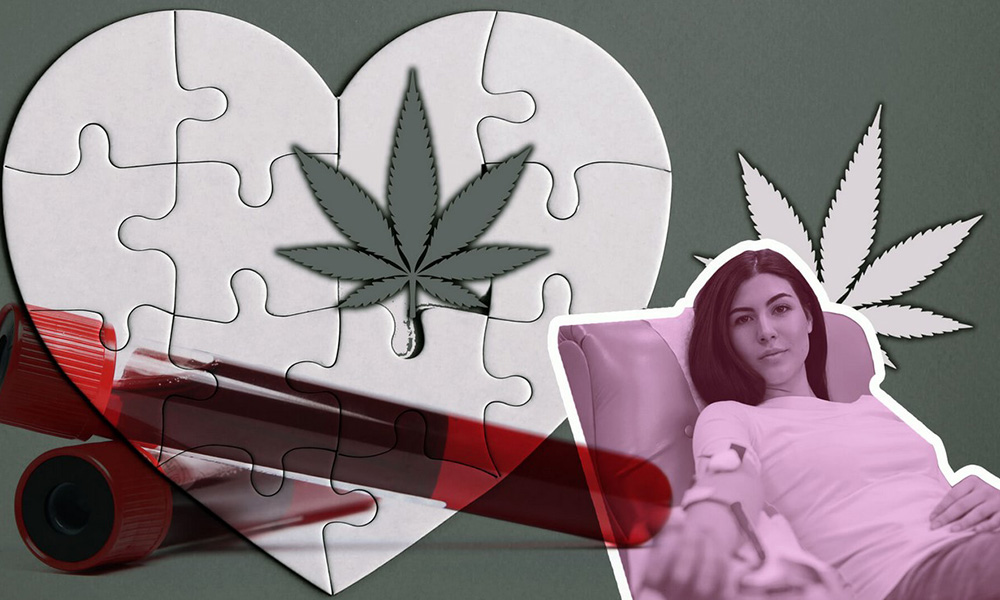Non classé
How Long Does Cannabis Stay in Your Blood and System
Tetrahydrocannabinol, the chemical in marijuana that makes people feel “high,” may be stored in the body for weeks.
The amount of time this chemical remains in the body or shows up on a drug test is influenced by a number of circumstances. Here are some examples:
- how much body fat a person has
- how often they consume the drug
- how much someone smokes
- the sensitivity of the drug test
It may take anything from a few days to a few weeks for alcohol or other chemicals to be eliminated from the body. By comparison, marijuana lingers much longer. Drug tests can detect tetrahydrocannabinol, or THC, in urine, blood, and hair for many days after using cannabis. Because THC is water-soluble and disappears quickly from saliva testing can only detect it for a brief period of time. THC becomes bound to fat in the body, extending the time it takes people to eliminate all traces of THC from their systems. “Trusted Source.” This implies that it binds to fat in the body and extends the length of time it takes individuals to totally remove THC from their systems.
Marijuana detection windows

According to scientific studies, the range of average times for detecting marijuana has been determined. A single marijuana cigarette was discovered in a 2017 research to have a predicted detection period of around 3 days. According to the same study, window duration depends on how often someone smoker.
It showed:
- For a person who is smoking marijuana for the first time, drugged driving tests may discover marijuana use for around 3 days.
- For someone who habitually uses marijuana three or four times per week, the detection period is 5–7 days.
- Tests may last 30 days or more for people who use marijuana once a day or more.
The type of test a person takes also has an impact on the number of windows that appear on the screen. The following are estimates for various marijuana tests:
- Saliva and urine tests may detect cannabis in the urine for up to 30 days after usage.
- Saliva testing can detect cannabis for up to 24 hours after consumption. Some saliva tests have shown traces of marijuana for more than 72 hours.
- Hair tests are the most sensitive THC detectors, detecting it up to 90 days after usage. These analyses, nevertheless, look at the oil in skin that transfers to hair and might therefore result in a false positive. A hair test can reveal someone who has come into contact with someone who has used marijuana.
- THC can only be detected in blood for 3–4 hours using conventional methods.
How much do you have to smoke to fail a drug test?
THC is very difficult to detect in cannabis cigarettes. THC may be identified only when the quantity of THC in a cannabis cigarette is quite small. In terms of THC levels, marijuana cigarettes are unpredictable, and drug tests may show minor traces of THC. However, little research has been done on how much smoking is required to fail a drug test.
According to studies, marijuana users who use it frequently are more likely to fail drug tests than infrequent users. Researchers checked current cannabis smokers from a 2012 research that used cannabis with 6.8 percent THC in one puff.
The highest THC levels in the urine were discovered 0.6 to 7.4 hours after smoking, according to study. THC was found in the urine of 100% of regular smokers and 60–100% of infrequent users using a highly sensitive urine test, according to research.
According to a 2017 Trusted Source study, hair samples from 136 marijuana users who reported moderate, little, or no use of marijuana were put through testing. For the study, researchers shaver hair into 1-centimeter pieces and expose it to up to a month’s worth of chemicals over several days.
Over two-thirds of heavy users and one-third of light users had THC in their system, according to the study. There were no nonusers with positive test results, suggesting that hair tests for marijuana are seldom false positives.
How Long Does It Take to Feel the Effects?
Marijuana’s effects vary considerably from one person to the next. Some people may experience a feeling of euphoria and calmness, while others might become nervous or terrified. The condition has been associated with drowsiness, lethargy, and forgetfulness. Others have reported feeling “dopey” and losing interest in hobbies or having trouble comprehending concepts.
THC, or delta-9-tetrahydrocannabinol, is the active chemical in marijuana that makes you feel “high.” After smoking marijuana, it enters the blood circulation rapidly.
When cannabis is consumed rather than inhaled, it takes longer for it to enter the circulation, usually from 20 minutes to an hour and a half, depending on how much was taken and other physiological variables such as absorption and metabolism.
Cannabis can have a variety of health impacts depending on the souche, method of consumption, and amount used. They are as follows:
- Dry mouth
- Swollen eyelids
- Bloodshot eyes
- Pleasurable body sensations
- Increased appetite (“the munchies”)
- Relaxation
- Stimulation
- Distorted perception (sights, sounds, time, touch)
- Loss of coordination
- Trouble with thinking, memory, and problem-solving
- Increased heart rate
Cannabis has the ability to reduce your attention and trigger mental symptoms that last one to two hours, with residual effects potentially persisting for up to 24 hours. According to the National Highway Safety Administration, it reduces your driving performance by up to three hours.
The terpene profiles of a specific strain can also have an impact on the effects of marijuana. Citrus terpene signatures are more stimulating, which may be the goal or cause of anxiety.
It’s critical to note that not all marijuana is the same. Marijuana goods, unlike other prescription medicines, are not regulated and can vary significantly in quality, composition, and dosage.
The amount of THC in your product can influence how quickly you feel its effects and what those effects are. It’s crucial to talk about your cannabis use with your doctor, given that THC interacts with alcohol, blood thinners, and anti-anxiety medications.
Factors that influence detection
The following are some of the most common reasons why a drug test for marijuana might come up negative:
Test sensitivity
Sensitive tests may pick up lower amounts of cannabis. Blood, urine, hair, and spit are all examples of examinations that can be used to detect marijuana usage.
THC dose
The cannabinoid THC is the primary chemical target of marijuana drug tests. The actual substance they’re searching for is THC, not cannabis. So the most significant thing in terms of amount of THC consumed is the fact that
The effects of THC are cumulative. This implies that someone who smokes multiple times throughout many days has ingested a greater THC quantity than someone who only smokes once, and they are more likely to test positive as a result.
It’s also vital to consider the strength of each dose of THC. There are no accurate ways for a person to assess the potency of their marijuana without sophisticated laboratory equipment. The degree of “highness” a person feels is impossible to determine, because many other factors besides THC dosage can alter it.
Body fat

According to studies, cannabis might be more slowly metabolized by people with higher body fat percentages. The BMI is a metric used to estimate one’s weight and body composition. Because muscle mass increases the amount of weight that individuals have, it isn’t the most reliable indicator of bodily fluid since it measures only weight.
Sex
Females have more body fat than males. The higher heart attack and cardiac mortality rates among female cannabis users may be caused by the fact that they process the drug at a slower rate than male users, which raises the risk of heart disease in women.
Hydration
The quantity of THC in your system rises when you’re dehydrated. While drinking a lot of water is unlikely to cause a problem, severe dehydration might.
Exercise
The metabolism of THC by the body is not significantly affected by exercise. Exercise, on the other hand, may help you pass a drug test if done just before it.
Trusted Source conducted a small study with 14 frequent marijuana users. 35 minutes of bike exercise was evaluated in this experiment. According to the findings, THC concentrations increased significantly, implying that exercising immediately before a drug test might raise the likelihood of a positive test result.
According to the study’s authors, physical activity may cause fat cells to release THC. According to their research, persons with a greater BMI had greater increases in THC levels.
Metabolism
THC must be eliminated from the body in order for a drug test to be passed. People with faster metabolisms eliminate THC more rapidly than those with slower metabolisms.
How to get marijuana out of the body faster
The solution is to decrease the amount of THC in cannabis or speed up metabolism. Proper hydration may assist prevent a drug test from revealing abnormally high THC levels. This implies that being dehydrated has a better probability of causing a bad result for people whose test results are close to good and bad.
There is no known method of boosting the metabolism. Exercise may enhance the body’s ability to break down THC, but exercising too close to a test might also result in a false positive. It is critical to keep track of the time since your previous exposure and the testing date.
Takeaway
The length of time it takes for someone to metabolize marijuana and eliminate it from their bodies is impossible to predict. Home tests may be used to determine if a person has recently used cannabis.
In a month, almost everyone should be able to get rid of or have a very small quantity of marijuana. Marijuana may disappear from the body in 10 days or less for occasional users.


